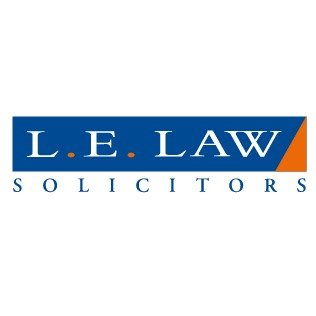Best Creditor Lawyers in London
Share your needs with us, get contacted by law firms.
Free. Takes 2 min.
List of the best lawyers in London, United Kingdom
About Creditor Law in London, United Kingdom
Creditor law in London is largely influenced by the insolvency law of the United Kingdom. When a person or business can't pay the debt they owe, creditors may take legal actions to reclaim the amount owed to them. It includes mortgage lenders, credit card companies, and other financial institutions. They have the right to take steps like petitioning for the debtor's bankruptcy, or taking control of the debtor's property to pay the debts. These creditor-debtor relationships are regulated by comprehensive legislation, including the Insolvency Act 1986, Consumer Credit Act 1974, and Financial Services and Market Act 2000 along with various regulations and rules.
Why You May Need a Lawyer
If you're a creditor and your debtor defaults in payment, you may need a lawyer to help you navigate through the complex process of debt recovery. A lawyer can help to evaluate your case, guide you on the most effective ways to reclaim your money, and represent you in court proceedings if necessary. Furthermore, if you're facing a situation where a debtor has become insolvent or gone bankrupt and there is a complex situation of asset distribution, a lawyer can be invaluable. Lastly, a lawyer can provide advice on how to structure adequate protective measures to favour creditors in legal arrangements.
Local Laws Overview
Local creditor laws in the UK are designed to ensure a fair and reasonable process for both creditors and debtors. They require creditors to provide proper notice before initiating legal action and outline strict rules around debt collection practices. UK laws cater also to international debt recovery. Therefore, if you are an international creditor trying to recover debt in London, local laws facilitate this with established procedures. Important legislation to consider includes Insolvency Act 1986, the Consumer Credit Act 1974, Financial Services and Market Act 2000, and the Limitation Act 1980, which sets out limitation periods for debt recovery.
Frequently Asked Questions
What rights do creditors have?
Creditors can take legal action to retrieve their money if a debtor defaults on payment. This includes filing a court claim, petitioning for the debtor's bankruptcy, or seizing the debtor's property.
What are the limitations on debt recovery?
London's debt recovery practices are subject to the Limitation Act 1980, which provides a period of six years for most of the debts, after which legal action cannot be taken. This period starts from the date of last acknowledgment of the debt or last payment.
What happens if a debtor becomes insolvent or goes bankrupt?
If a debtor becomes insolvent, proceedings under the Insolvency Act 1986 may begin. In bankruptcy, a trustee is appointed to sell the debtor's assets to repay the creditors. These situations can often be complex, and it's advisable to seek a lawyer's advice.
What is included in the assets that can be seized?
When a debtor becomes insolvent or declared bankrupt, their assets - including property, savings, and potentially a portion of their income - may be used to repay debts. However, some assets, like tools of trade or vehicles, can be exempt.
Can international creditors recover debt in London?
Yes, UK laws cater to the need of international debt recovery through established procedures. It's advisable to hire a local lawyer who is proficient in UK creditor law to help navigate these processes.
Additional Resources
The Financial Conduct Authority (FCA) offers guidelines relating to fair treatment of customers by businesses providing credit. The Insolvency Service, a Government agency, provides free advice and guides on insolvency and debtors' and creditors' rights. The Citizens Advice also provides further information and guidance on debt and money issues.
Next Steps
If you find yourself needing legal advice as a creditor in London, you should consult a qualified professional. Seek a lawyer specializing in creditor law to guide you through the debt recovery process, offer you up-to-date advice about your rights and obligations, and even represent you in any court proceedings if necessary. It would be beneficial to prepare all relevant documents and details before your consultation to facilitate your discussion and to gain accurate advice.
Lawzana helps you find the best lawyers and law firms in London through a curated and pre-screened list of qualified legal professionals. Our platform offers rankings and detailed profiles of attorneys and law firms, allowing you to compare based on practice areas, including Creditor, experience, and client feedback.
Each profile includes a description of the firm's areas of practice, client reviews, team members and partners, year of establishment, spoken languages, office locations, contact information, social media presence, and any published articles or resources. Most firms on our platform speak English and are experienced in both local and international legal matters.
Get a quote from top-rated law firms in London, United Kingdom — quickly, securely, and without unnecessary hassle.
Disclaimer:
The information provided on this page is for general informational purposes only and does not constitute legal advice. While we strive to ensure the accuracy and relevance of the content, legal information may change over time, and interpretations of the law can vary. You should always consult with a qualified legal professional for advice specific to your situation.
We disclaim all liability for actions taken or not taken based on the content of this page. If you believe any information is incorrect or outdated, please contact us, and we will review and update it where appropriate.









